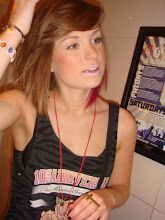- a simplified representation of a group/people
- groups people together
- says they are all the same
- reinforces the stereotype
- narrative shortcut
- reflect stereotypes that exist
- criticised for creating stereotypes, but they are usually part of the audiences way of thinking about the world anyway
Stereotypes usually have an element of truth to them to make them plausible.
Butler
The boundaries are blurring between men and women, the relation between the two is fluid. 'A man can demonstarte feminie qualities the same as a woman can demonstrate masculine qualities and can change from one to the other depending on the context'. Butler calls this a 'sliding scale of gender'.
Negatives of stereotypes:
- judgement-basis is usually negative
- don't allow for individual traits
- exertion of power for people outside the stereotype
- countertypes
- media texts attempted to construct new approaches to old stereotypes
- Appearance - physical/clothes/voice
- Behaviour - typical things people are assumed to do
- Attitude - the way people are percieved as thinking
Our chosen stereotype:GEEK
Appearance:
- glasses
- shirt & tie
- too short trousers
- big rucksack bag (laptop, books)
- posh voice
- high pitched laugh
- really clever
- do homework as soon as they get it
- no social life/friends
- read LOTS
- maths as a hobby (sudoku, algebra)
- in a band (trumpet)
- Gretchen (Recess)
- Milhouse (Simpsons)
- Napolean Dynamite

No comments:
Post a Comment